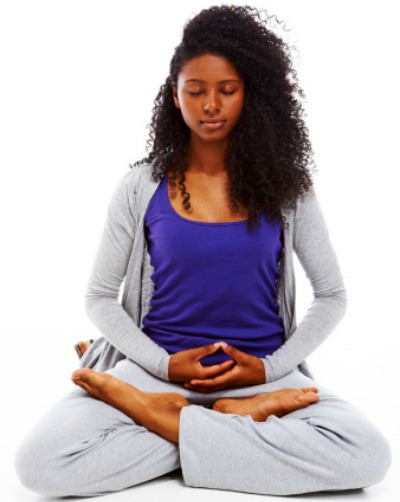Hello Goddess,
When I first started working as a therapist in college, I would be so nervous at the beginning of a session. To keep my own panic attack at bay, I’d do some breathing exercises before going in.
Once the session began, I’d always read a relaxation script and quietly set an intention to be fully present.
They loved it because it was calming for them, and I loved it because it helped me get centered.
Plus, it seemed like a really cool thing for a ‘therapist’ to do.
I knew Freud would be jealous.
Now, I begin and end each session with relaxation — because it works (and it’s still a really cool thing for a therapist to do:)
If relaxation isn’t a part of your daily life, we’re going to change that today.
30 seconds, 2 minutes, 5 minutes or 10 can make a HUGE difference.
Did you know:
Any form of mental concentration practiced for 10 minutes activates your body’s natural healing response. This is called the relaxation response.
The relaxation response* is: “a physical state of deep rest that changes a person’s physical and emotional responses to stress.”
The Relaxer…An Ultimate Self-Management Program
What is now referred to as most Health & Wellness Programs in the US, is often a hidden stress management program in action.
Stress management programs were created in the early 70’s when corporate america wanted ways to keep their employees happy, healthy, and at work.
You may have heard it this way: increased job productivity = more money for the company and hopefully, more money for you.
Stress management programs are designed to reduce the cognitive (how we think), psychological (how we feel), and behavioral (what we do) effects of stress.
All original stress management programs were called self-management programs back in the day.
Since words are powerful, I refer to all health and wellness programs as self-management programs.
Why Is It Important To Understand Stress?
Because stress worsens ANY condition. It speeds the progression of illness and dis-ease, and if a person is in this state long-term, it can even have fatal results.
In our case, it can lead to unexplained hair loss, an inability for hair to grow, and other hair drama.
Fortunately, stress is easy to treat and uses my most favorite activity — relaxation.
I know you never thought I would tell you to get a relaxer, but Girl…You Need A Relaxer.
We all do!
 First, measure your current stress level with this online stress assessment — The Perceived Stress Scale.
First, measure your current stress level with this online stress assessment — The Perceived Stress Scale.
This is one of the most effective measurements for stress in the country. I use it in every study on relaxation I do! This online version does not require you to enter any identifying information. Just enter your answers, click submit, get your numbers.
DON’T WORRY GODDESS…It’s bad for your hair
Your results (low, high or in-between) don’t mean you need immediate medical treatment. No self-report assessment does. What it gives is a snapshot of what’s been happening in the last 30 days. At the end of this challenge, or this time next month, take it again and compare your results.
I guarantee, they will be lower.
The Relaxer(s)
The relaxers we’ll be using have no chemicals and has permanent, positive long-term results.
Get comfy, call this number, and apply this relaxer to your mind and body. You will be led in a brief (3 to 5 minute) mindfulness exercise from MIT’s Community Wellness Program. It’s a recording so you can call anytime.
617-253-CALM (617-253-2256)
For 2 additional practices that are 10 minutes or longer, try:
GetHeadspace.com (Headspace.com)
Stress Management Activity #1
This week, choose 1 relaxation exercise and commit to practicing it once a day for up to 10 minutes.
Remember, any form of mental concentration counts so:
- exercise
- play chess
- do nothing…on purpose
- try something new
- go for a 20 minute walk
- color, paint, doodle, or draw
- create a private Pinterest Board of some AWESOME place you’ll visit, or that thing you’re going to do in 2015
- [your suggestion here:]
Resources List
- **The Body Scan, Harvard Pilgrim Healthcare
- Do Nothing For 2 Minutes
- Headspace.com
- MIT Community Wellness Downloads
- *The Power of The Relaxation Response, American Psychological Association (2008)
- Progressive Muscle Relaxation Exercise (PMR), UC Berkley School of Law
- Test Your Stress, The Perceived Stress Scale, Be Mindful Online
Do you have a relaxation practice already?
